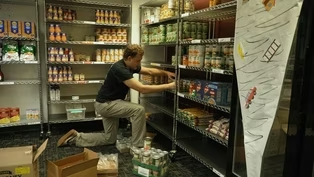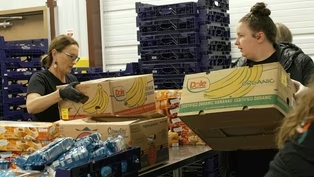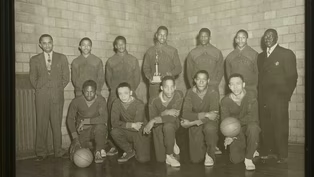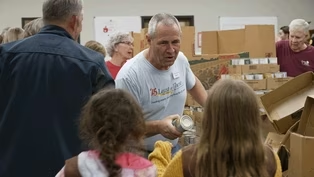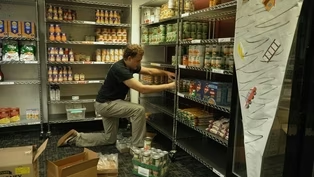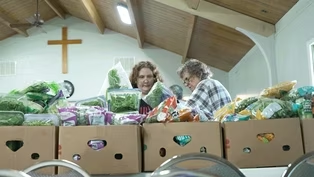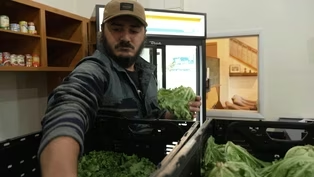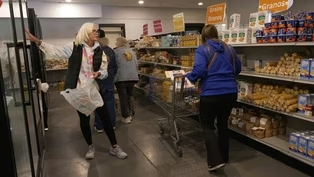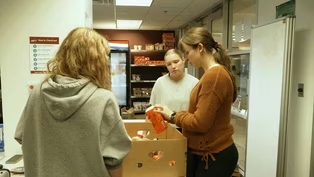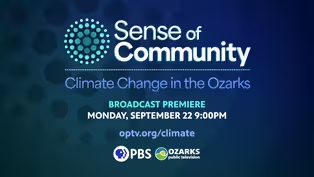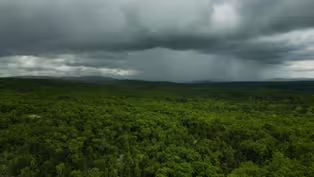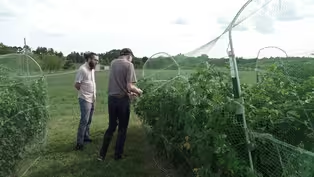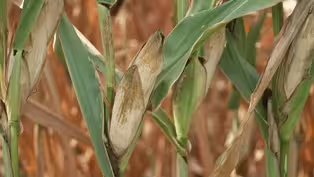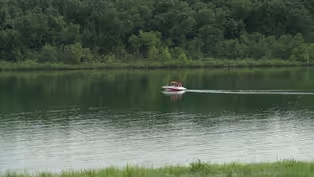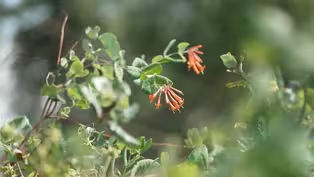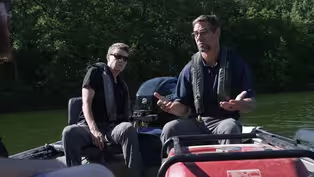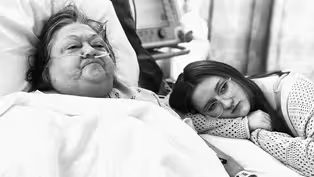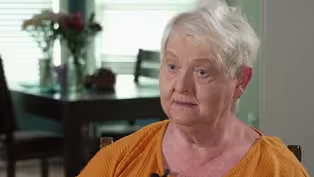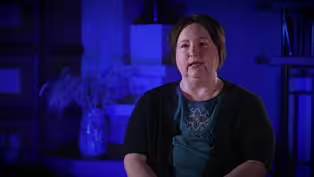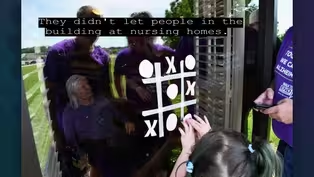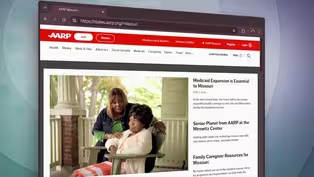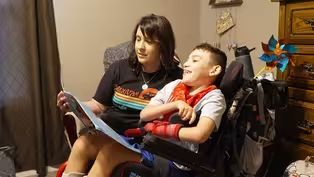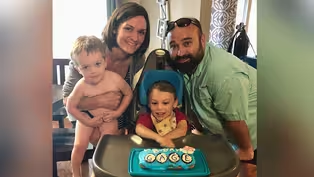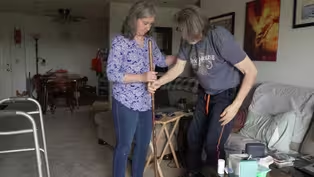Sense of Community
Reframing Care
Clip | 2mVideo has Closed Captions
Caregivers reflect on emotional toll, stress rest, reflection, and daily joy to reframe caregiving
Mark Applegate, Nia Howard, and Maureen Templeman reflect on the emotional toll of caregiving while emphasizing the importance of rest and reflection and how finding daily joy can help to reframe caregiving in our society.
Problems playing video? | Closed Captioning Feedback
Problems playing video? | Closed Captioning Feedback
Sense of Community is a local public television program presented by OPT
Sense of Community
Reframing Care
Clip | 2mVideo has Closed Captions
Mark Applegate, Nia Howard, and Maureen Templeman reflect on the emotional toll of caregiving while emphasizing the importance of rest and reflection and how finding daily joy can help to reframe caregiving in our society.
Problems playing video? | Closed Captioning Feedback
How to Watch Sense of Community
Sense of Community is available to stream on pbs.org and the free PBS App, available on iPhone, Apple TV, Android TV, Android smartphones, Amazon Fire TV, Amazon Fire Tablet, Roku, Samsung Smart TV, and Vizio.
[MUSIC PLAYING] NARRATOR: Caregiving can be lonely business.
The CDC finds 25% of all US adults only sometimes or never receive the social and emotional support they need.
The issue can be worse for caregivers.
A study looking at caregiving of elders in the "Journal of Gerontology" found 12% of caregivers were socially isolated, 27% were lonely.
We need to be able to take a physical deep breath.
We need to be able to recharge and refresh.
You are human and perfectly made, and humans need that break.
They need somebody that is on their side.
Reflection is a-- is a big thing.
You think about the things you did right, think about the things you did wrong.
You can either bury that, or you can share it with someone else.
And hopefully they don't do the same things.
One thing I learned that was very helpful for me is finding daily joy in time with mom instead of just dwelling on what's-- what's missing from her.
A lot of studies focus on, like, burden and depression among caregivers although not all caregivers do experience those things.
A lot of caregivers have tremendous coping resources, and they're able to find meaning in caregiving and find that they're learning new skills or that they're contributing positively to the person that they love, that they're giving back to the person who gave so much to them.
Often like African-American and Hispanic or Latinx caregivers do find more meaning and benefit in caregiving, and I think that's sort of a cultural thing.
And so to sort of reframe the idea of caring for a loved one in our society, it really could help to counteract that feeling of burden and then also place a higher value on caregiving so that maybe there would be more incentive for federal or state governments to give benefits to caregivers.
Preview | 30s | Ozarks nonprofits strive to make sure no one goes hungry (30s)
Video has Closed Captions
Clip | 2m 15s | Ozarks Food Harvest partners with another local nonprofit to provide fresh produce for those in need (2m 15s)
Video has Closed Captions
Clip | 2m 30s | Joplin area residents come together each week to help a local nonprofit feed their community (2m 30s)
Video has Closed Captions
Clip | 2m 10s | A food pantry in Ozark provides, food, education and resources to those in need (2m 10s)
Video has Closed Captions
Clip | 2m 30s | Families in the Ozarks face difficult choices between buying food and paying rent (2m 30s)
Video has Closed Captions
Clip | 2m | Volunteers make sure unused crops get to those facing hunger (2m)
Video has Closed Captions
Clip | 2m | Community fridges across Springfield are helping to feed those who would otherwise go hungry (2m)
Video has Closed Captions
Clip | 2m 20s | Christian Action Ministries works to fill a need in Stone and Taney Counties (2m 20s)
Video has Closed Captions
Clip | 2m 20s | The Bear Pantry challenges conceptions of what food insecurity looks like (2m 20s)
Video has Closed Captions
Clip | 20s | Climate Change in the Ozarks - Broadcast Premiere Sept, 22 at 9pm (20s)
Video has Closed Captions
Clip | 5m 30s | Experts weigh in on the impacts of climate change on the Ozarks and suggest possible solutions. (5m 30s)
Video has Closed Captions
Clip | 5m 45s | Climate change creates greater rainfall in the Ozarks, negatively impacting our rivers. (5m 45s)
Video has Closed Captions
Clip | 3m 10s | Ozarks researchers work diligently to provide solutions to agricultural challenges (3m 10s)
Video has Closed Captions
Clip | 3m 48s | A local farmer describes the challenges of growing crops in a changing Ozarks climate. (3m 48s)
Video has Closed Captions
Clip | 3m 50s | As a growing population in the Ozarks consumes more water, the need for new sources arises. (3m 50s)
Video has Closed Captions
Clip | 3m 2s | Native plants serve as a unique solution to the obstacles faced by Ozarks wildlife and habitat. (3m 2s)
Video has Closed Captions
Clip | 3m 51s | Floating wetlands present a unique solution to the problem of algal blooms in the Ozarks. (3m 51s)
Video has Closed Captions
Clip | 1m 45s | Young caregivers, often driven by gender norms, face challenges but grow personally (1m 45s)
Awareness Rising: The Future of Caregiving
Video has Closed Captions
Clip | 1m 58s | Experts stress caregiving awareness; hospice care users share how it deepened their bond (1m 58s)
Video has Closed Captions
Clip | 2m | Caregivers reflect on emotional toll, stress rest, reflection, and daily joy to reframe caregiving (2m)
Video has Closed Captions
Clip | 1m 58s | COVID isolation impacted personal connection's role in health and happiness (1m 58s)
Tackling Missouri’s Dementia Crisis
Video has Closed Captions
Clip | 1m 50s | 130,000 Missourians have dementia; 250,000 unpaid caregivers face isolation, service gaps. (1m 50s)
Redefining Care: Finding Support and Recognition
Video has Closed Captions
Clip | 1m 50s | Caring for a disabled child brings emotional, financial hurdles; need for better access to support (1m 50s)
Video has Closed Captions
Clip | 1m 58s | Caregivers share emotional struggles while experts suggest therapy, and peer support for stress. (1m 58s)
Video has Closed Captions
Clip | 1m 50s | Caregivers often experience depression, fatigue, and medical crises, and emotional strain (1m 50s)
Providing Support for PBS.org
Learn Moreabout PBS online sponsorship
- News and Public Affairs

Top journalists deliver compelling original analysis of the hour's headlines.

- News and Public Affairs

FRONTLINE is investigative journalism that questions, explains and changes our world.












Support for PBS provided by:
Sense of Community is a local public television program presented by OPT
